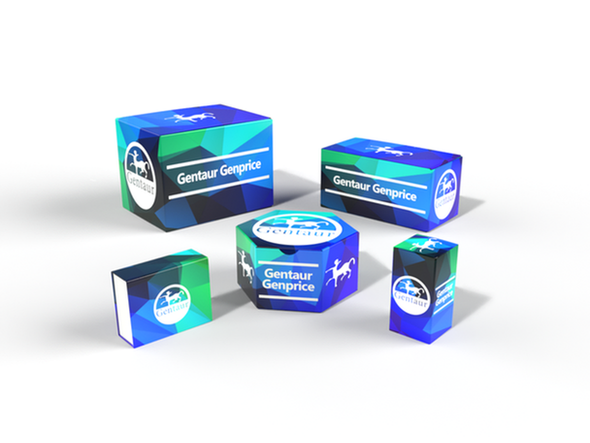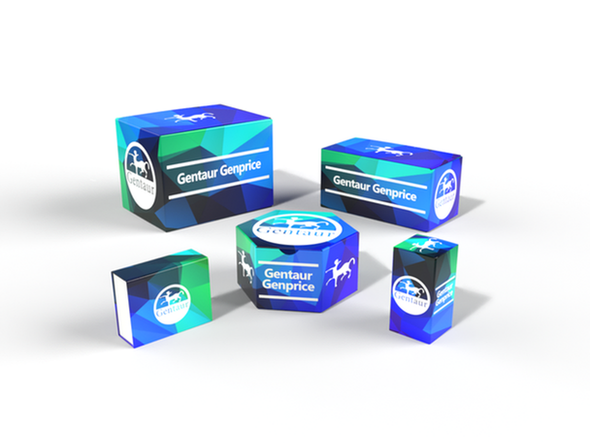740
Rabbit Plasminogen activator inhibitor 1 (PAI-1) ELISA Kit | AE28776RB
- SKU:
- 740-AE28776RB
- Availability:
- Usually ships in 5 working days
Description
Rabbit Plasminogen activator inhibitor 1 (PAI-1) ELISA Kit | AE28776RB | Gentaur UK, US & Europe Distribution
Species Reactivity: Rabbit (Oryctolagus cuniculus)
Abbreviation: PAI-1
Alternative Name: N/A
Application: ELISA
Range: 0.781-50 ng/mL
Sensitivity: 0.29 ng/mL
Intra-Assay: ≤5.5%
Inter-Assay: ≤8.9%
Recovery: 0, 9
Sample Type: Serum, Plasma, Other biological fluids
Detection Method: Sandwich
Analysis Method : Quantitive
Test Principale: This assay employs a two-site sandwich ELISA to quantitate PAI-1 in samples. An antibody specific for PAI-1 has been pre-coated onto a microplate. Standards and samples are pipetted into the wells and anyPAI-1 present is bound by the immobilized antibody. After removing any unbound substances, a biotin-conjugated antibody specific for PAI-1 is added to the wells. After washing, Streptavidin conjugated Horseradish Peroxidase (HRP) is added to the wells. Following a wash to remove any unbound avidin-enzyme reagent, a substrate solution is added to the wells and color develops in proportion to the amount of PAI-1 bound in the initial step. The color development is stopped and the intensity of the color is measured.
Product Overview: Plasminogen activator inhibitor-1 is the principal inhibitor of tissue plasminogen activator (tPA) and urokinase (uPA), the activators of plasminogen and hence fibrinolysis (the physiological breakdown of blood clots) . It is a serine protease inhibitor (serpin) protein (SERPINE1) . The other PAI, plasminogen activator inhibitor-2 (PAI-2) is secreted by the placenta and only present in significant amounts during pregnancy. In addition, protease nexin acts as an inhibitor of tPA and urokinase. PAI-1, however, is the main inhibitor of the plasminogen activators. PAI-1 is mainly produced by the endothelium (cells lining blood vessels), but is also secreted by other tissue types, such as adipose tissue.
Stability: The stability of ELISA kit is determined by the loss rate of activity. The loss rate of this kit is less than 5% within the expiration date under appropriate storage condition. The loss rate was determined by accelerated thermal degradation test. Keep the kit at 37°C for 4 and 7 days, and compare O.D.values of the kit kept at 37°C with that of at recommended temperature. (referring from China Biological Products Standard, which was calculated by the Arrhenius equation. For ELISA kit, 4 days storage at 37°C can be considered as 6 months at 2 - 8°C, which means 7 days at 37°C equaling 12 months at 2 - 8°C) .






